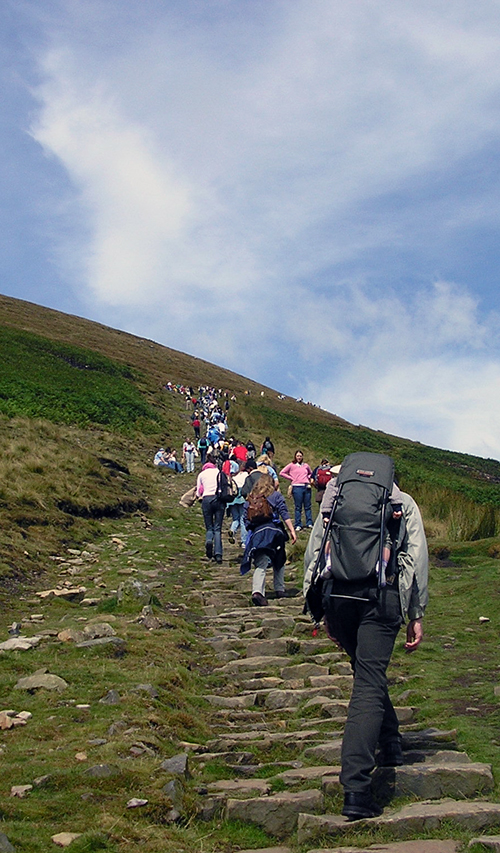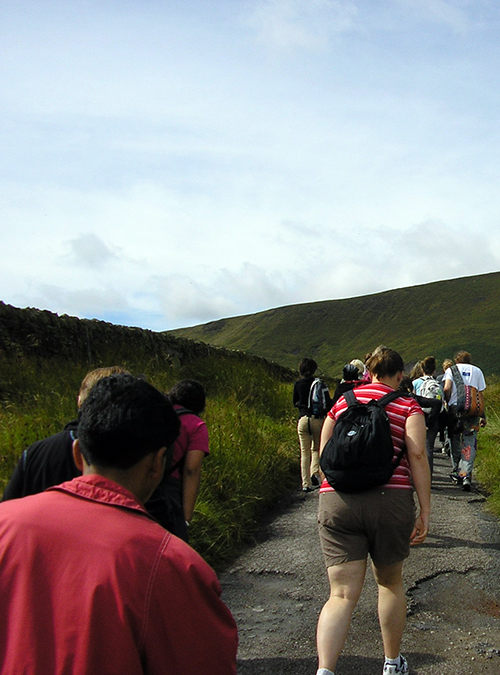
In the early days of the Quaker movement, Quaker evangelists swept through the British Isles, the Continent of Europe, across the Atlantic to the American colonies, and even as far as the Muslim lands of the Middle East. The Valiant Sixty went out from Swathmoor Hall, determined to spread the good news of the risen Jesus to the ends of the earth. They moved from village to village, preaching the gospel and connecting isolated communities into a new movement of the Holy Spirit. To be a public minister in this early movement meant, almost by definition, to be on the road.
This sort of itinerant ministry was revolutionary when originally practiced. In an age when local communities were often cut off from one another, a visit from a traveling Friend could break down barriers of communication and geography, connecting a movement across regions, or even continents. The traveling minister represented not just an inspired preacher of the gospel, but a living connection with a wider community.
Now, in the first quarter of the 21st century, our situation has changed dramatically. In stark contrast to the geographical settledness of 17th-century England, we live in a society where many of us travel vast distances on a regular basis. Even transatlantic travel, which would have been the journey of a lifetime even a hundred years ago, can now be undertaken almost casually.
 Our living arrangements are just as fluid. Most of my friends, for example, do not live in the state where they grew up. We are encouraged to leave our hometowns for college, and then to travel wherever we find the most potential for career advancement. Where I live, in Washington, DC, many people are only here for a few years; they come to gain connections and work experience before moving on to another city when a better job offer arises.
Our living arrangements are just as fluid. Most of my friends, for example, do not live in the state where they grew up. We are encouraged to leave our hometowns for college, and then to travel wherever we find the most potential for career advancement. Where I live, in Washington, DC, many people are only here for a few years; they come to gain connections and work experience before moving on to another city when a better job offer arises.
This way of life wreaks havoc on community. As a young professional, it is hard to invest in relationships if you know that you will probably be leaving for another city within the next few years. Even for those of us who are more rooted, there is a great temptation to avoid investing in relationships with those who will probably be moving on. Why spend time and energy on someone who will likely be gone soon?
In the midst of such uncertainty of relationships and place, it may be time to reevaluate our models of ministry. It could be that the great need of the 21st century is non-traveling ministers: women and men who make themselves available to ground and nurture stable communities in a society deeply marked by transience. In a culture that practically worships keeping one’s options open, an intentionally settled ministry could be just as radical today as the traveling ministry was three and a half centuries ago.
Yes. I think this is a needed message, Micah. I’m very interested in ministry that is deeply rooted in a particular neighborhood, land, and people.
mark me down as one who has stayed in the same place with only brief side trips for the past almost 46 years, now pondering a possible relocation.
An interesting thought.I think, though, that “settled ministers” must be
like Thoreau, who “traveled much in Concord.” We need to reach out to
the variety of our community, not sitting in our Meeting House. Note: two of us are going to a Ramadan meal presented by the Islamic Center at the Episcopal Church. It’s a small thing, but a start.
Pingback:Preparing for a purposeful adventure | Jolly Quaker